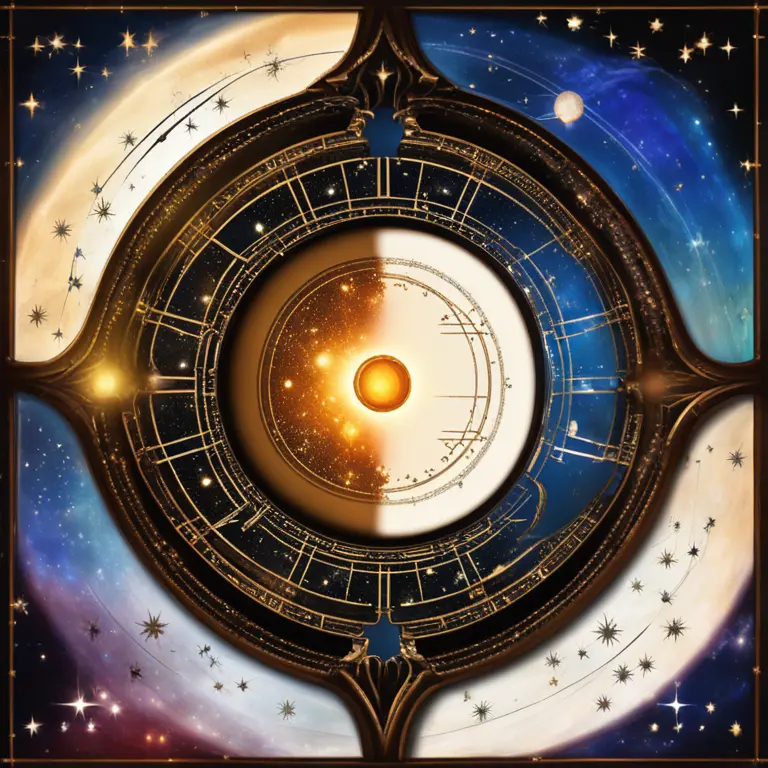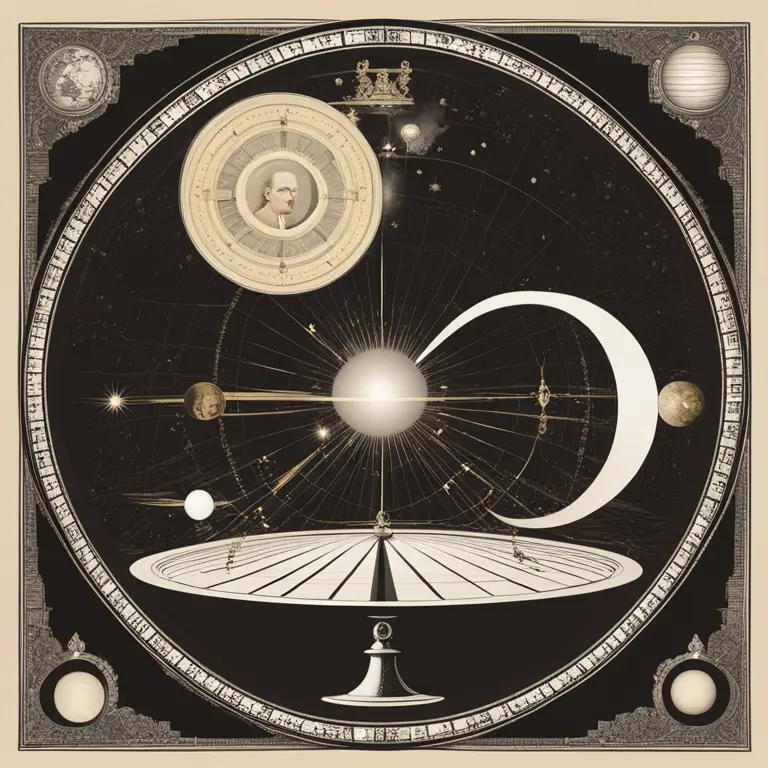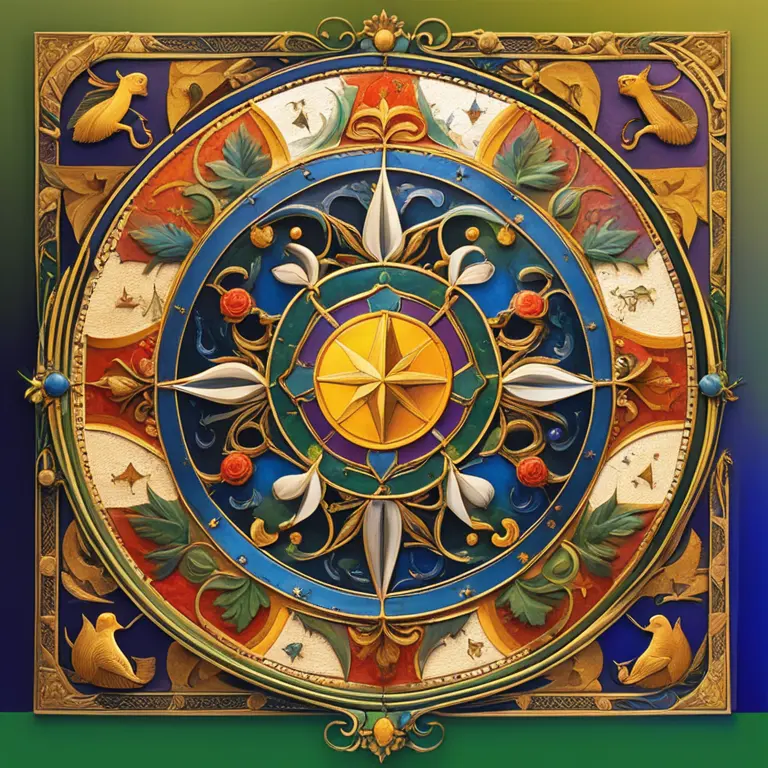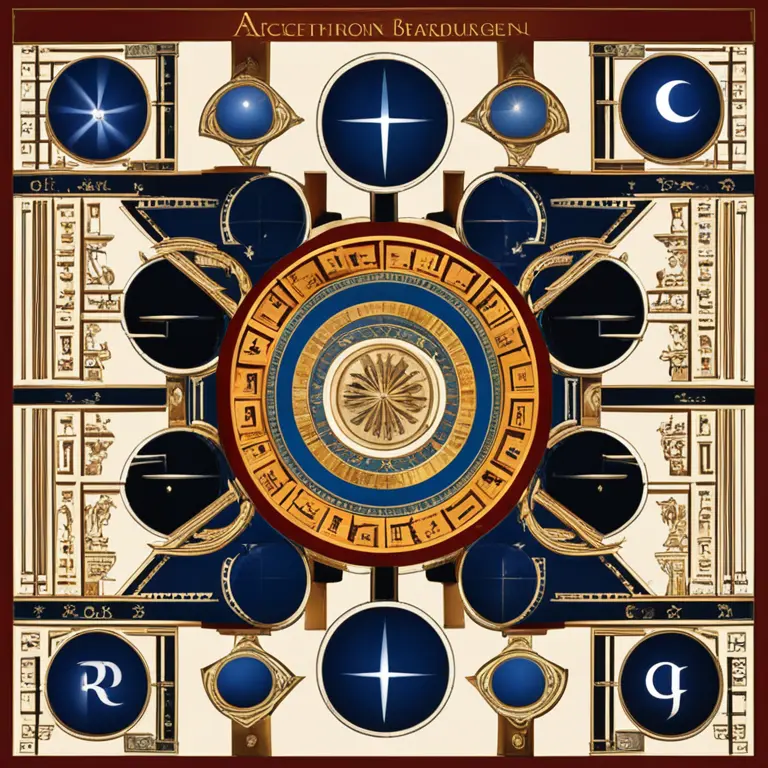
The Historical Tapestry of Astrology
Dive into the rich legacy of astrology, from ancient lore to modern understanding, and discover how the stars have guided humanity's journey throughout history.
article by Priya Deshmukh
A Celestial Origin
The story of astrology begins under the ancient night skies, where our ancestors first marveled at the heavens. Astrology's roots stretch back to the earliest civilizations, with Babylonians often credited for its birth over 2,000 years ago. They developed a system where celestial phenomena were associated with gods and events on Earth. These astrological traditions influenced subsequent cultures, fostering a practice that intertwines the fate of humans with the cosmic dance of the planets and stars. This shared celestial language bridged communities, allowing astrology to seep into various aspects of life such as agriculture, politics, and religion.

Greek and Roman Contributions
The Greeks, fascinated by the predictive power of Babylonian astrology, refined and expanded upon these celestial interpretations, integrating them into their own rich mythologies. By the 1st century BCE, astrology was a cornerstone of Hellenistic culture, its techniques polished, and its scope broadened. The Romans, too, welcomed astrology, though with a pragmatic approach that favored its application in determining propitious times for events and understanding the dynamics of personality through zodiacal signs. This was an era of intellectuals such as Ptolemy, whose work 'Tetrabiblos' laid the foundations for Western astrological practice.

The Medieval and Renaissance Astrologers
Astrology's journey continued through the Middle Ages and into the Renaissance, standing alongside astronomy as a respected scholarly discipline. Islamic scholars preserved and enhanced astrological knowledge, bridging the gap between antiquity and the Renaissance. Astrology was highly respected, with courts employing astrologers to guide monarchs. The Renaissance period saw an astrological renaissance, bolstered by the printing press's ability to disseminate astrological works widely. Notable figures such as Nostradamus contributed to its prestige, with forecasts and predictions that captured the public's imagination.

Enlightenment and Skepticism
However, the rise of the Enlightenment brought a tide of skepticism toward astrology. The differentiation of astrology from astronomy became more pronounced, and the scientific revolution prioritized empirical evidence over astrological correlation. Astrology's prominence waned as it became more associated with the realm of entertainment and personal guidance, rather than significant political or scientific discourse. Despite this, astrological practice persisted, finding new life in the spiritual and psychological realms.

The Modern Astrological Renaissance
In the late 19th and 20th centuries, astrology underwent a resurgence. The Theosophical movement and figures like Carl Jung, with his concept of synchronicity, provided new frameworks for understanding astrology outside of traditional religious contexts. Astrology's psychological dimension gained traction, particularly with the development of sun-sign astrology, which simplified the complex art for mass consumption. The advent of technology in the 21st century has brought astrology into the digital age, with software simplifying chart calculations and social media allowing for instantaneous astrological updates.
Looking to the Future
As we look towards the future, astrology's role in society continues to evolve. With growing interest in spirituality and self-discovery, astrology finds relevance among those seeking insight into their personal journeys. The practice continues to adapt, incorporating contemporary understandings of identity, inclusivity, and psychological well-being. It's a testament to its enduring allure that astrology, one of humanity's oldest attempts to make sense of the cosmos, continues to captivate and guide us, as we stand beneath the very same stars that inspired our ancestors thousands of years ago.
Published: 2/13/2024
Modified: 2/13/2024
More predictions
Come back here soon to learn more about yourself and your future


The Tarot's Queen of Pentacles: A Guide to Practical Wisdom
Delve into the significance of the Tarot's Queen of Pentacles and discover how this card symbolizes nurturing abundance and material mastery in readings.


The Essential Tarot Card Meanings Guide with Images
Discover the meanings behind the mystical tarot cards with our comprehensive guide, complete with vivid imagery to enhance your understanding of each card's symbolism.


The Tarot Queen of Cups: A Sign of Compassion and Insight
Delve into the symbolism and significance of the Queen of Cups in Tarot, uncovering her nurturing essence and intuitive power in divination.